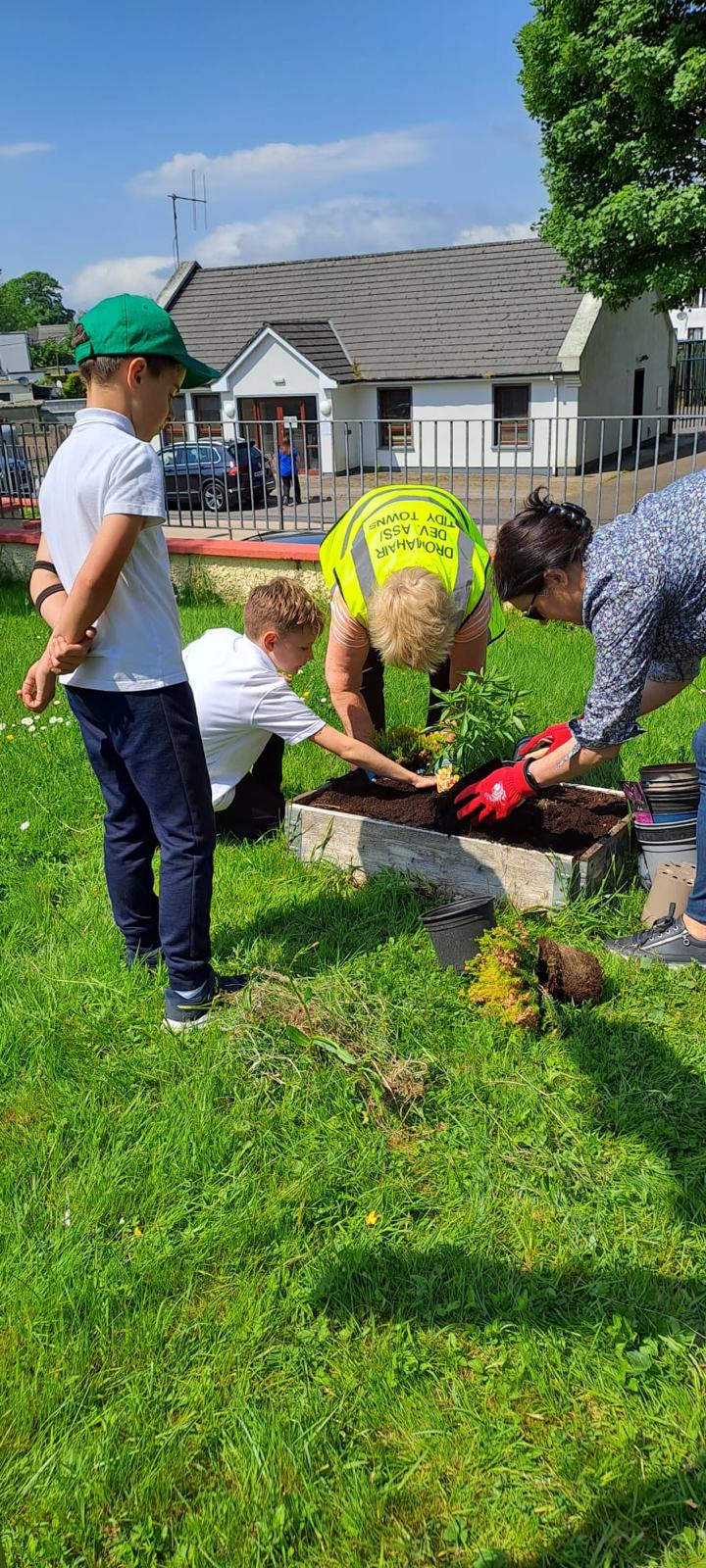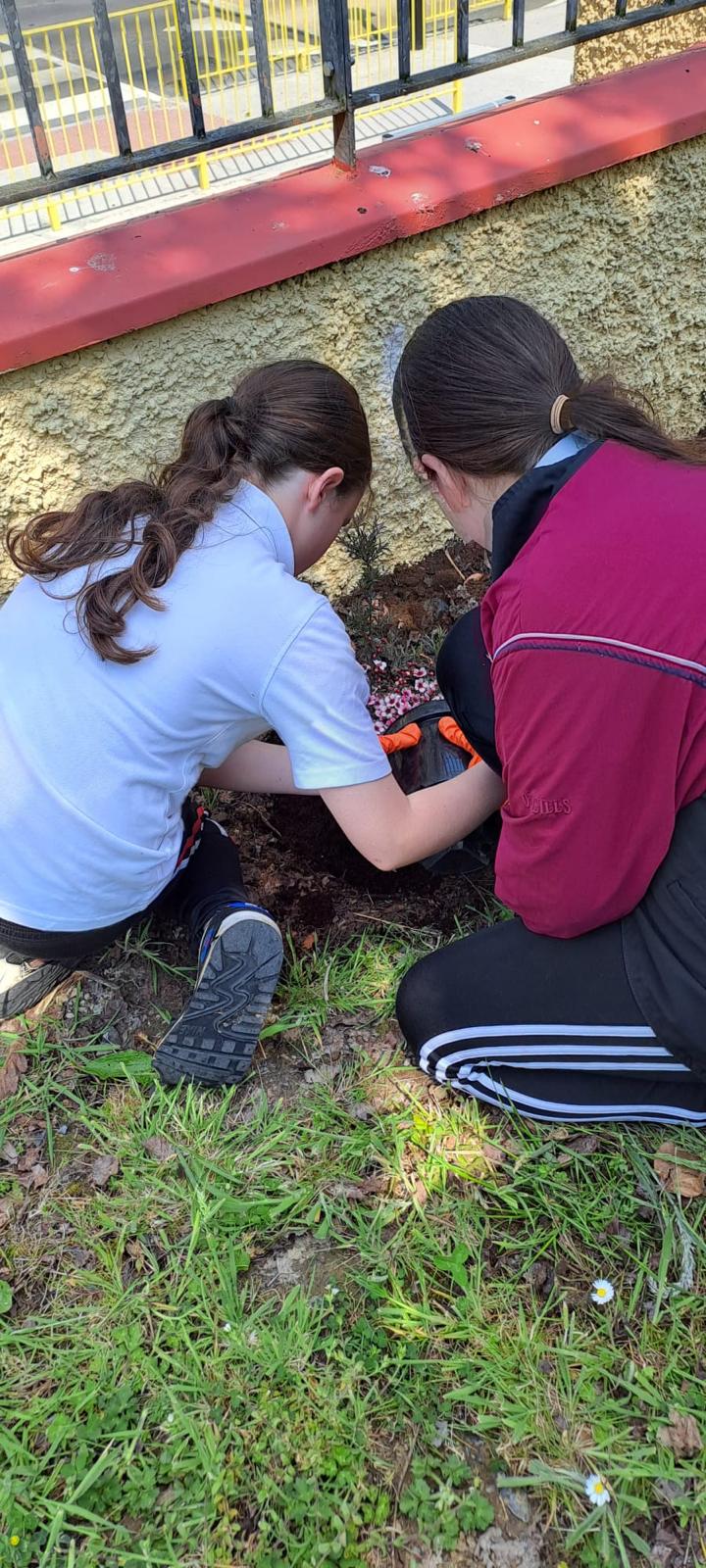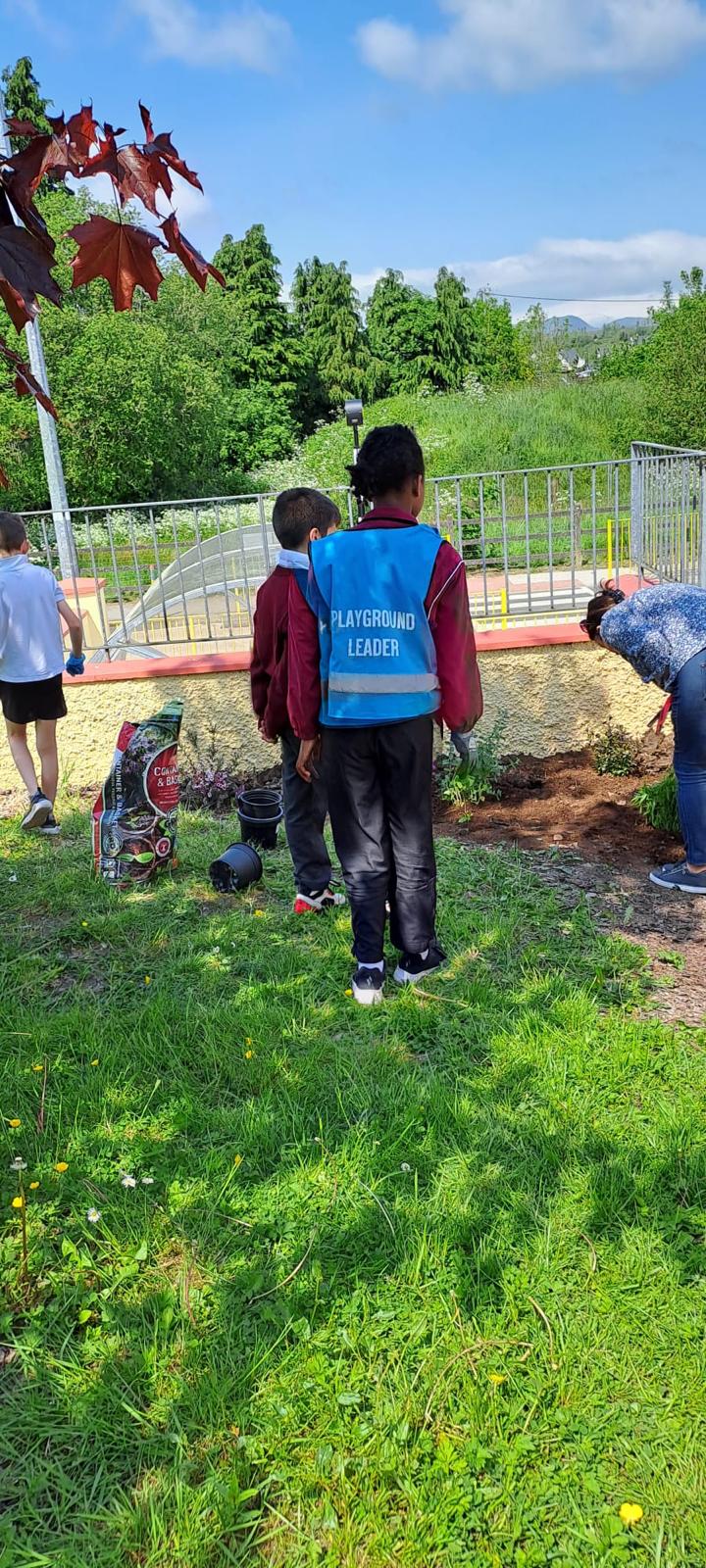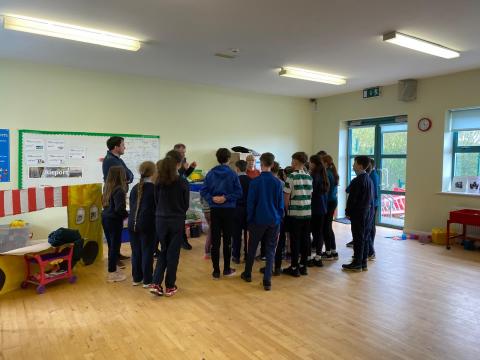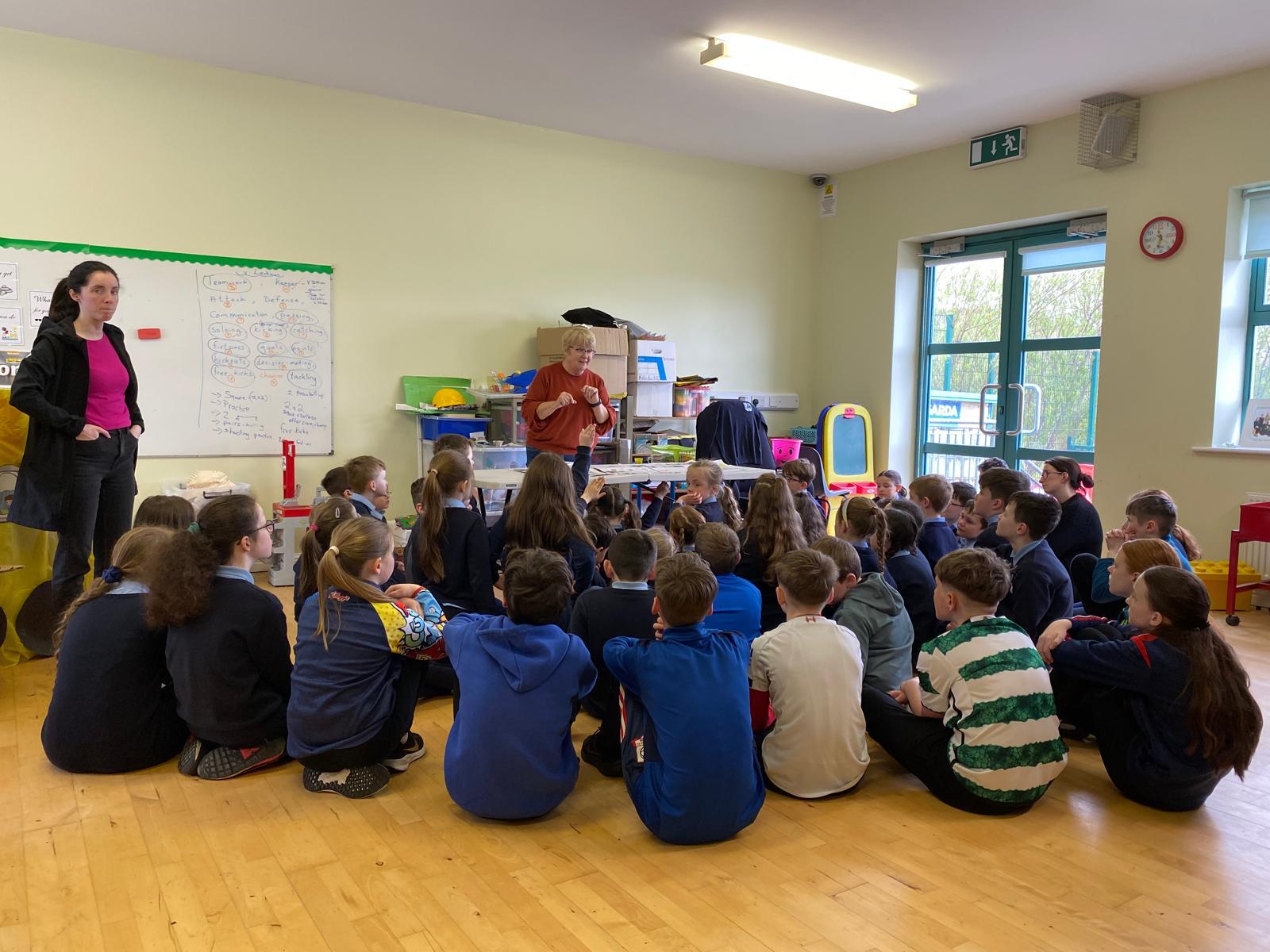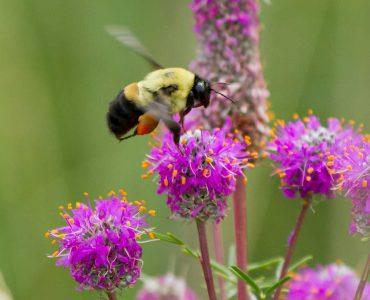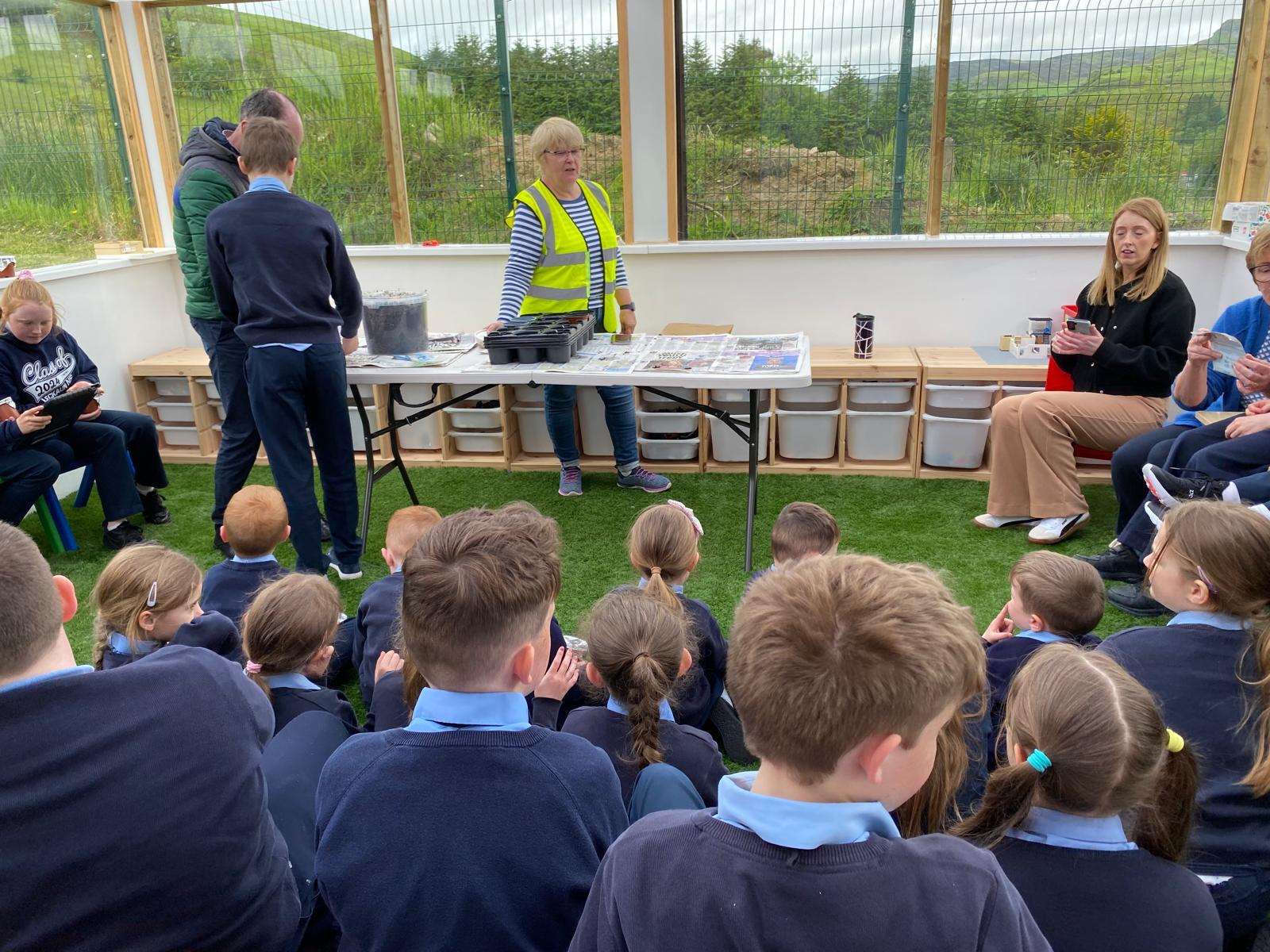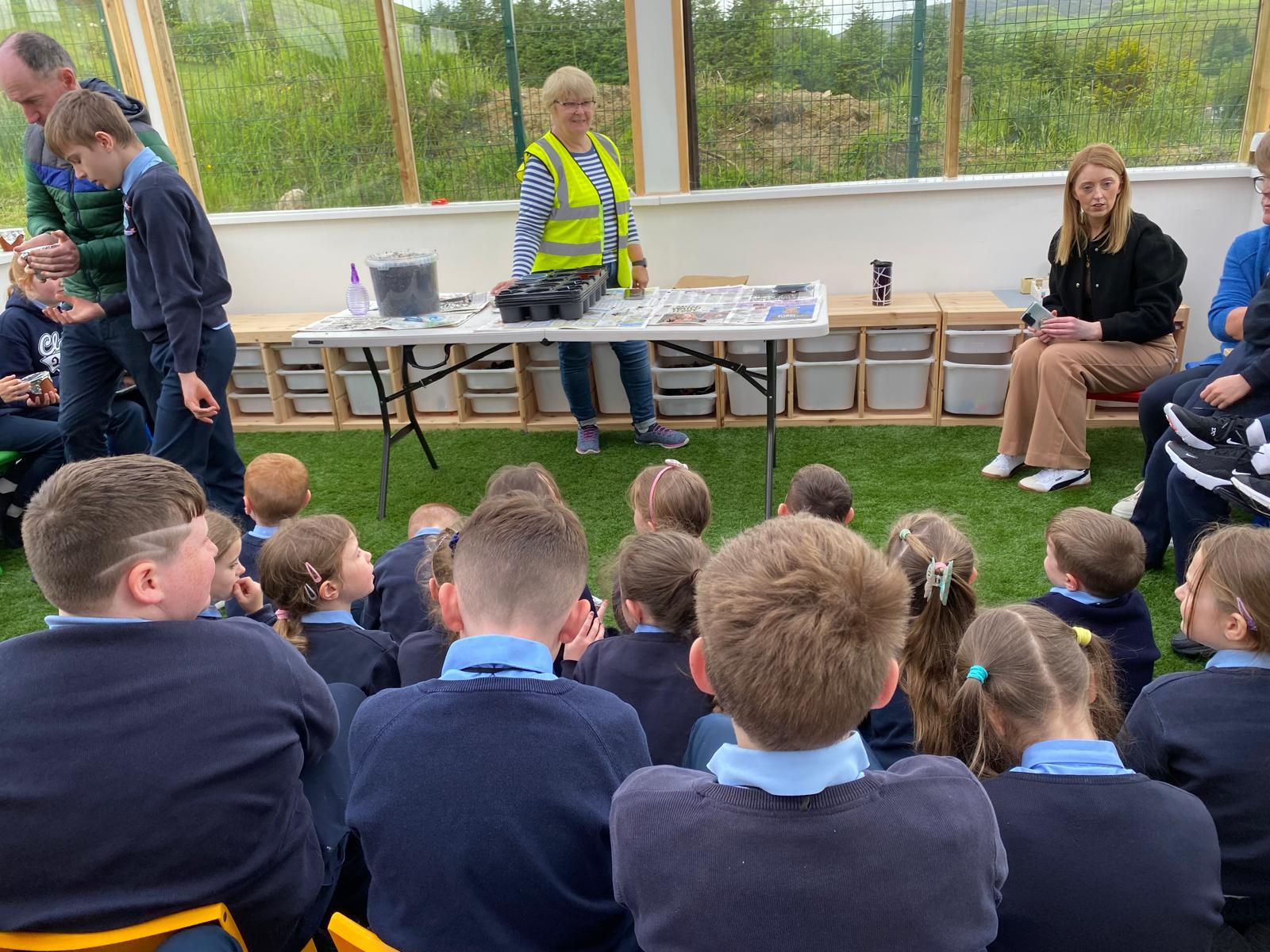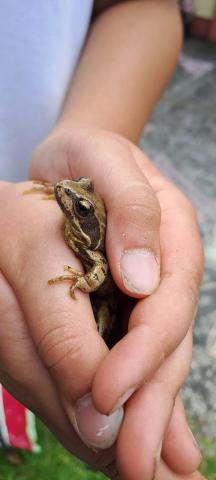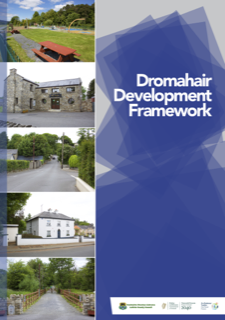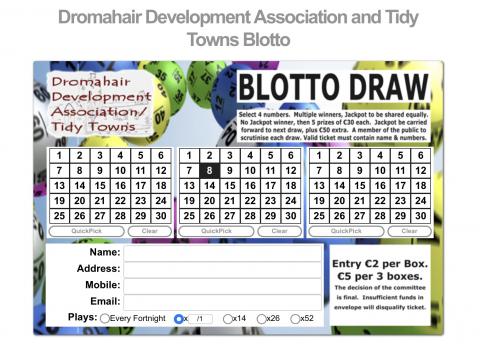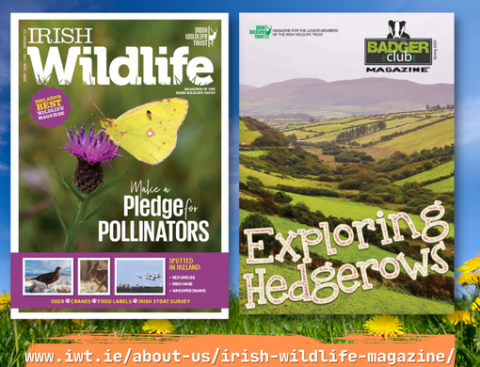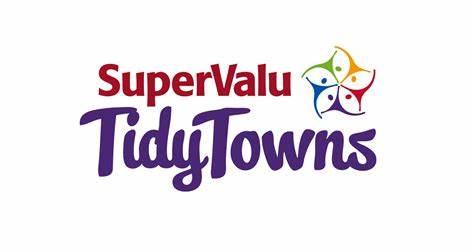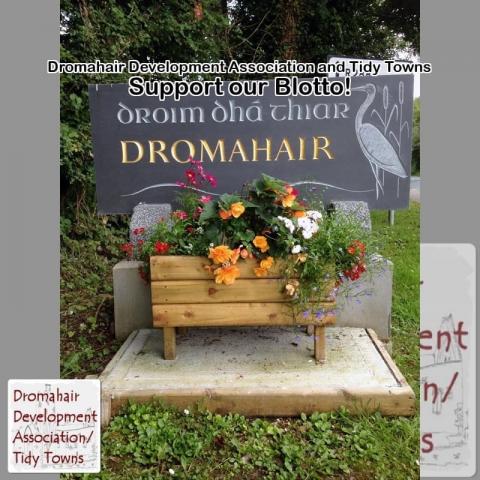Biodiversity School Visit
May was a very busy time for our committee as we arranged to work with the primary schools in the area to talk to them about our Biodiversity Action Plan and how we all have a part to play in looking after our environment and habitats. The children were very enthusiastic and loved to talk about slugs, frogs, birds, bees and all things nature.
A huge thank you to Killenummery, Drumlease, Ardvarney and Leckaun for the support and great welcome. Staff and pupils were terrific and we really enjoyed working with you all.
As part of the visit we presented some fruit bushes to the schools for their sensory areas and we hope you all enjoy and look after them.
We planted some wild flower seeds with the children and at Drumlease we planted up some flower beds also with great help from the pupils and the amazing Ann. Lots of volunteers for watering duties so we have no doubt this will be a lovely area in a short time.
We told the children about our plans going forward and encouraged them to visit our website when we get our bird box cameras set up for next year.
--------------------------------------
Given that connectedness of the natural environment, biodiversity loss is an issue of concern to group water schemes and is also an issue on which they can give leadership within rural communities. To promote biodiversity enhancement within the rural water sector, the NFGWS appointed Adrian Smyth to lead on this issue. Adrian has worked closely with the National Biodiversity Data Centre on its All-Ireland Pollinator Plan and providing a practical guide to what can be done on GWS sites to provide food and habitat for pollinators such as bees.
Group water schemes are encouraged to give careful consideration to their use of pesticides to control vegetation at GWS sites and around valves and fittings, and to actively consider non-chemical control methods. The Department of Agriculture, Food and Marine (DAFM) also provides lots of useful guidance in its advice on the management of public amenity areas and gardens here.
Similarly, schemes should encourage alternative strategies to the control of rushes within their source catchments through methods other than the spraying of MCPA, which is a particular issue for Irish drinking water supplies. For DAFM guidance on this issue, click here. For guidance on appropriate land spreading, which also has source protection and biodiversity implications please see this short video produced by Agricultural Sustainability Support and Advice Programme (ASSAP)
The NFGWS has also developed a Framework plan and implementation strategy to encourage the wider adoption of measures for the protection of biodiversity, such as the planting of pollinator-friendly vegetation and appropriate management of hedgerows. A guidance document to help schemes protect biodiversity during Capital Works has also been issued.
Sign up to the All-Ireland Pollinator Plan and record your actions
For further information on the All-Ireland Pollinator Plan and on wider biodiversity, click here. The supporter agreement form can be downloaded here.
The Pollinator-friendly Management of Group Water Scheme Sites is available to read here. You can also map your actions here and download the Gardening for Biodiversity guide here.

